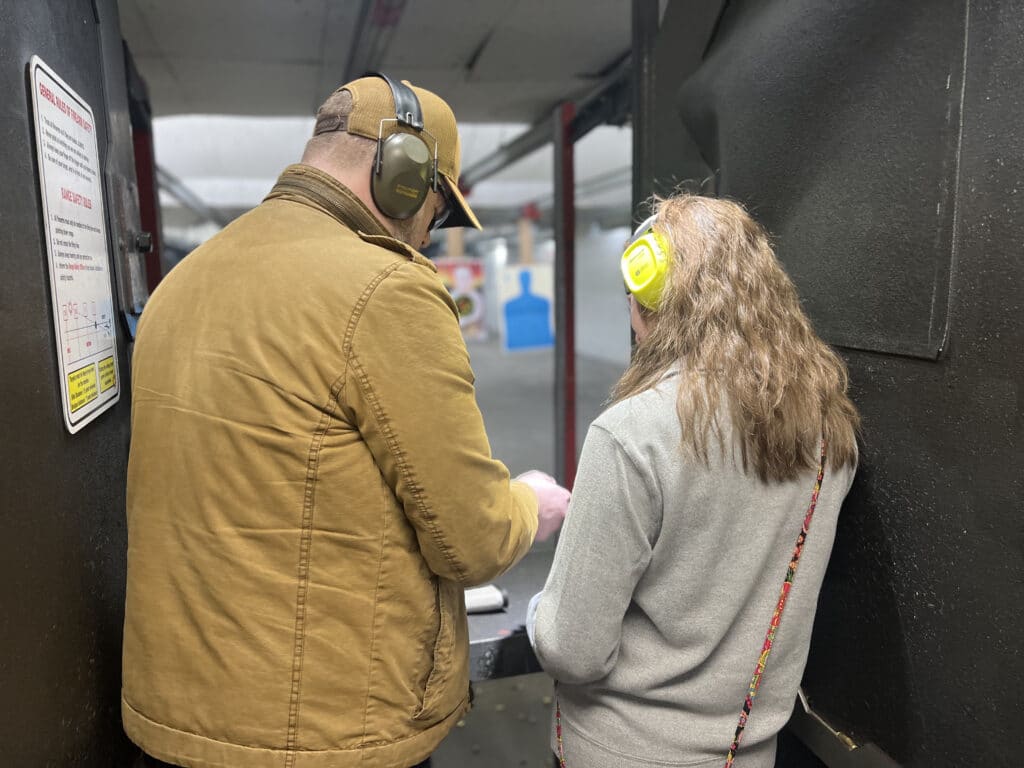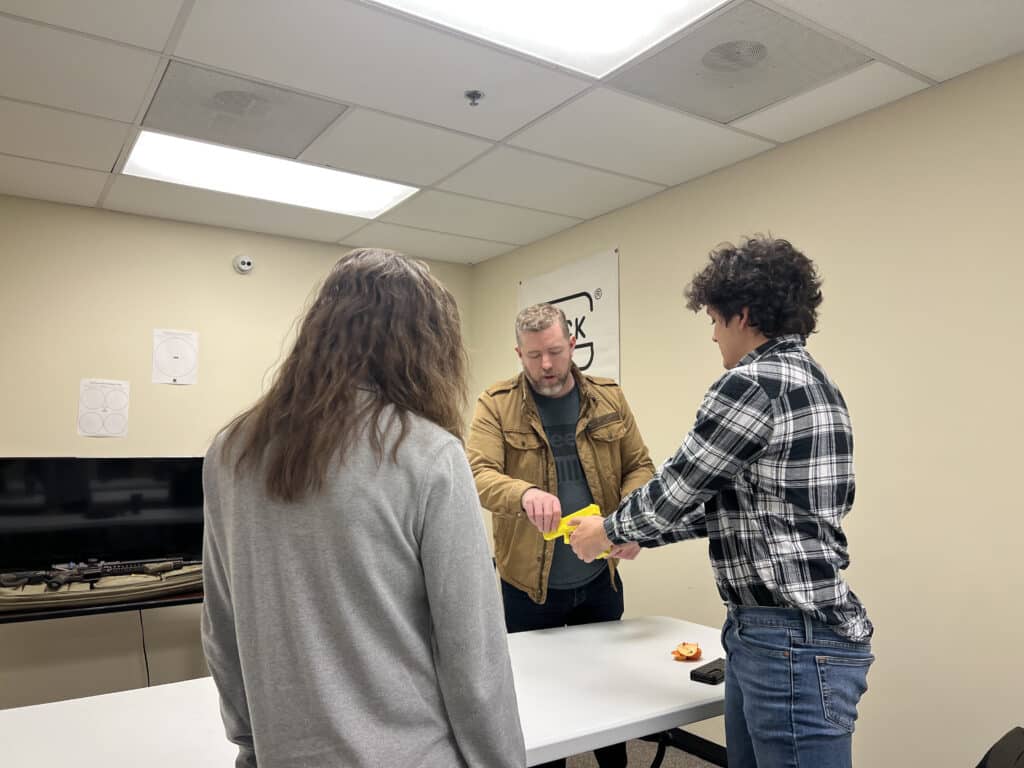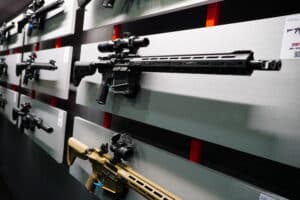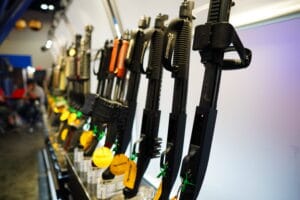Permitless carry hit a new high-water mark this week. Florida became the second-largest state to adopt the policy on Monday. It also became the 26th to do so.
Contributing Writer Jake Fogleman looks at how much further the permitless tide may reach. A few more states seem primed to eliminate concealed carry license requirements. But the prospects may dry up after that.
DC’s problems with aggressive enforcement of its prohibitive gun-carry law look a whole lot like the problems New York City and Baltimore have run into as well. I don’t think that’s a coincidence. And I explain why strict enforcement of strict gun laws is prone to creating racial disparities, even when law enforcement officials aren’t actively trying for that result.
I was also out on the range quite a lot this weekend. So, I figured I’d give you all a look at my latest work with journalism students. And then I’d do a quick recap of my Saturday trying out one of the most popular competitive shooting disciplines.
Plus, Jake and I answer gun policy and politics questions sent in by Reload Member on this week’s episode of the podcast.
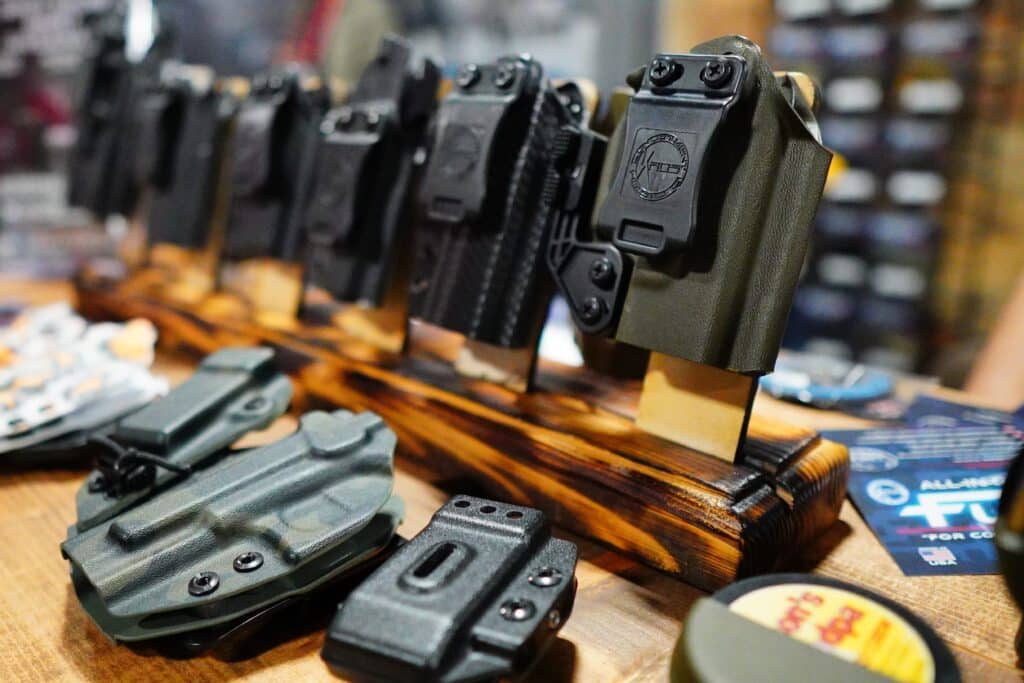
Analysis: Now a Majority Policy, Where Does Permitless Carry Go from Here? [Member Exclusive]
By Jake Fogleman
Permitless gun-carry advocates hit another milestone this week, but is the movement running out of room to grow?
On Monday, Florida became the 26th state in the country to adopt a policy allowing any adult who would otherwise qualify for a concealed-carry permit to carry a firearm in public without obtaining one first.
“Constitutional Carry is in the books,” Governor Ron DeSantis (R.) said, punctuating the sea change that took place with Florida’s adoption of the policy. Once the law takes effect on July 1, a majority of states will officially allow law-abiding adults to exercise their right to bear arms in public for self-defense without getting government permission beforehand. It will also mean that the second and third most populous states in the country (Texas and Florida, respectively) share that policy.
It’s a momentous victory for gun-rights advocates, who have had astonishing success in getting the policy adopted over the last two decades. Indeed, 24 states went permitless since just 2010.
But with such rapid success, there are bound to be speed bumps along the way. And it’s starting to look like the road ahead is about to get much bumpier for permitless carry advocates. That’s because there simply aren’t a lot of easy pick-ups left.
In the short run, sure, there is still some low-hanging fruit. At least two more states, Nebraska and South Carolina, will likely join Florida in passing permitless carry this year.
Nebraska’s permitless carry bill has already cleared a significant hurdle in the state’s unicameral legislature by receiving approval in two of the three required votes for passage, and the state’s Republican Governor has signaled his willingness to sign the measure into law. South Carolina’s Governor has also come out in favor of a permitless carry bill that has already cleared the state House and is awaiting approval in the state’s Republican-controlled Senate.
In addition to Nebraska and South Carolina, a case could be made for states like Louisiana and North Carolina potentially adopting permitless carry in the short-to-medium term.
The Republican-controlled Louisiana legislature already passed a permitless carry bill with huge majorities back in 2021. That effort was vetoed by Governor John Bel Edwards (D.) and a handful of legislators defected when it came time for a veto-override vote. With a change in the Governor’s seat or a new crop of Republican legislators less prone to flip-flopping, you could easily see Louisiana joining the rest of the Gulf states in going permitless.
The chances are slimmer in North Carolina, considering the political clout the state’s more progressive urban centers still wield. However, gun rights advocates currently have the wind at their backs. After years of failed attempts, Republican lawmakers were finally able to repeal the state’s Jim Crow-era pistol-purchase-permit law by overriding Democratic Governor Roy Cooper’s veto last month.
Furthermore, a party defection by state representative Tricia Cotham this week now gives North Carolina Republicans official supermajorities in both the House and Senate, and there are rumors that other Democratic legislators are considering a similar switch. In theory, that opens the door for gun-rights advocates to press for a permitless carry bill by the end of the next session that Governor Cooper can’t do anything to stop.
Beyond that, however, the path forward for further expansions of permitless carry is a lot murkier. Assuming all the above states do adopt the policy, that would make 30 mostly Republican-dominated states that do not require a permit to carry a concealed firearm. But the remaining 20 states would either be fairly evenly-split purple states or outright deep-blue bastions where a permitless carry bill will not see the light of day.
Pennsylvania’s recent permitless carry gambit highlighted the inherent limits of attempting to get the policy passed in a purple state, and Democrats have since gained more political power there in the ensuing years.
Of course, there’s always the possibility that permitless carry’s evolution from here mirrors that of shall-issue’s march across the country in a previous generation. Following Florida’s catalyzing adoption of shall-issue concealed carry permitting in 1987, chunks of states followed suit in several waves over multiple decades, to the point where all but seven states were willing to allow most lawful adults to carry a gun in public. If it becomes clear over the next few years that permitless carry is not the public safety disaster that its opponents claim it will be, then perhaps it too will see the same course of adoption.
But at the same time, gun politics has become a far more polarizing issue than it was when shall-issue permitting was gaining popularity. There are now fewer pro-gun Democratic constituencies (and, by extension, fewer pro-gun Democratic politicians) than there used to be. That could ultimately preclude permitless carry from sharing the same trajectory as its predecessor.
Based on the current landscape, 30 states may be the near-term cap on permitless carry’s reach–the best its backers can hope for under present-day political realities. Gun-rights supporters in the remaining 20 states will probably have to focus on more immediate goals, like fighting for functioning shall issue regimes and against Bruen pushback bills.
Podcast: We Answer Your Gun Questions [Member Early Access]
By Stephen Gutowski
It’s time for another Q&A podcast episode!
This week, we’re taking some of the best questions from Reload Members. Contributing Writer Jake Fogleman joins me to offer up our best answers to those questions.
And those questions covered all sorts of topics. One member asked how realistic confiscation of at least some firearms, such as AR-15s, is and what protections against the federal government implementing such a policy exists. Another asked about the long-term prospects for the gun-rights movement, especially in blue states.
We also explain how circuit splits work and discuss the weakness of the “common use” standard at the center of Heller and Bruen. I also give my point of view on some of the language often employed in media coverage of the AR-15.
You can listen to the show on your favorite podcasting app or by clicking here. Video of the episode is also available on our YouTube Channel. As always, Reload Members get access to the show on Sunday. Everyone else will be able to listen on Monday.
Come on the Podcast
One of the many perks of a Reload membership is the opportunity to appear on the podcast. We’ve had a lot of people on the show from all kinds of backgrounds. It’s one of my favorite segments since it gives us all a better insight into the community that makes this publication possible. If you want to come on the show, just reply to this email and let me know!
National Journalism Center Gun Class
On Friday, I helped teach a class on firearms reporting to students with the Young Americas Foundation’s National Journalism Center. We had a classroom portion focused on how best to cover gun stories and avoid some of the most common reporting mistakes.
Then we did a safety briefing and went to the range so the students could actually shoot some of the guns they might end up writing about in the future. That way they have some understanding of how handguns, revolvers, AR-15s, and silencers/suppressors actually function in reality.
It was a great class and the students were very sharp. They have lots of insightful questions and followed all of the safety rules diligently–always the most important part of any range day. I’m looking forward to doing the class again next semester too.
Trying Out IDPA Competitive Shooting
On Saturday, I got to try out an IDPA match. Reload Member Cody Claxton happens to be an area coordinator for IDPA in Virginia. So, he helped me get involved and taught me the rules alongside some great tips and tricks.
It was a great experience. IDPA is meant to try and simulate potential self-defense scenarios. You have to stay behind cover while shooting and pie corners and so on. The added pressure of being timed and put up against the scores of other shooters makes the whole thing very fun and very useful for improving your shooting skills.
This was a club match. So, it was a pretty casual atmosphere and everyone was very friendly. That helped make the stages less intimidating.
I did pretty well. Got better as I went along too. pic.twitter.com/HpSArzfQH2
— Stephen Gutowski (@StephenGutowski) April 8, 2023
It required hitting each target three times. My division lets you load 15 in your magazine plus one in the chamber. The stage needed at least 18 rounds to complete. So, a reload was necessary at some point. That adds a layer of strategy to the whole thing that’s pretty cool. I ended up putting four shots on each of the first four targets (they count your best three) and reloaded on the move.
I ended up 10th out of about 30 in my division on that stage. Not bad!
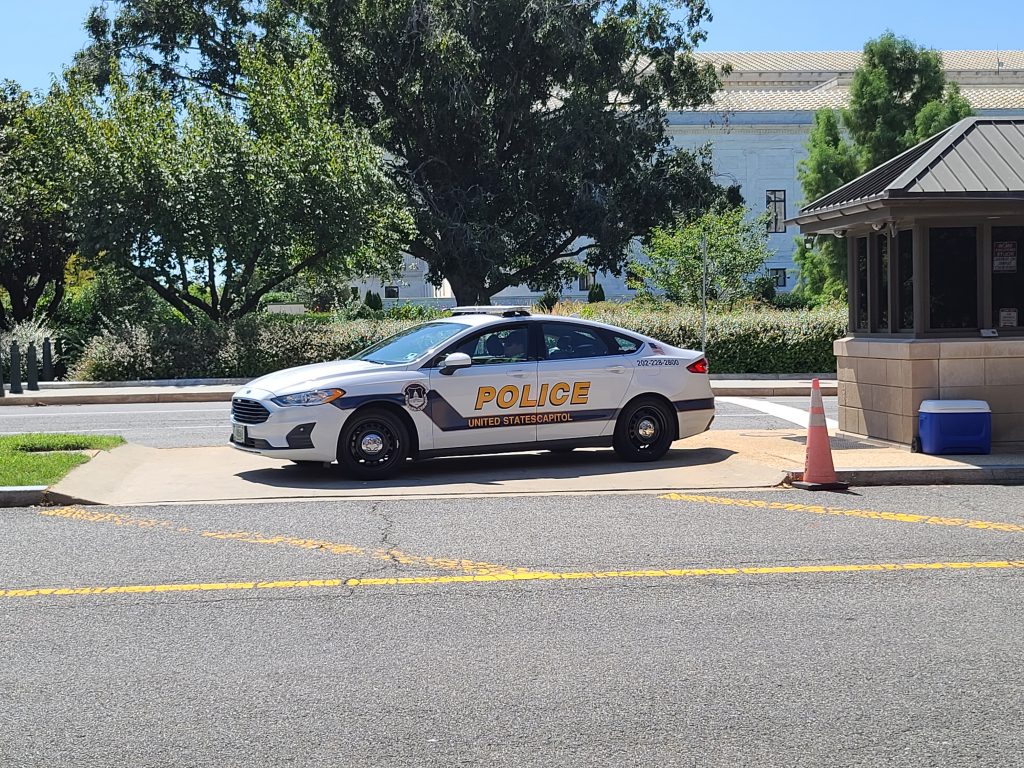
Analysis: How Strict Enforcement of Strict Gun Laws Begets Discrimination [Member Exclusive]
By Stephen Gutowski
Washinton, DC, has been accused of using unconstitutional and discriminatory tactics to enforce its gun laws.
Last week, a federal judge ruled a class-action suit against city officials over alleged targeting of Black men in poorer sections of the city for unwarranted scrutiny can move forward. The lawsuit claims police would use pre-texts to stop the men without probable cause to believe they’d committed a crime and then search them without permission or a warrant. This was all done in pursuit of getting guns off the street.
It’s a familiar story. Infamously, Michael Bloomberg instituted an even more aggressive version of this “stop and frisk” strategy during his time as New York City mayor. At least until it was ruled unconstitutional for targeting minorities. The scandal surrounding Baltimore, Maryland’s Gun Trace Taskforce reached new lows using similar methods, combined with outright corruption, in their own pursuit of racking up gun seizures.
But these enforcement schemes all have something in common beyond a blatant disregard for the Fourth Amendment rights of their victims: they’re the result of gun laws that are nearly impossible for many to actually comply with.
And that’s no coincidence. It’s the intended design of many of the laws in question. But it’s also the part of the story that often goes unexamined.
Understandably, a lot has been made about the uneven nature of enforcement in these situations. However, there is little discussion of how the strict gun laws being enforced create incentives for unfair enforcement, often against people who aren’t actually dangerous.
Take the gun-carry laws of Baltimore and New York when “stop and frisk” and the Gun Trace Taskforce were at their height. Both had particularly onerous “may-issue” permitting laws. That meant it was nearly impossible for anyone who wasn’t wealthy or connected enough to obtain a permit to legally carry a gun since officials could, and almost always did, reject applicants for any reason they saw fit.
So, most normal people couldn’t legally carry a gun on them.
At the same time, officials and police want to reduce gun crime. So, they focus resources on low-income neighborhoods where gun crimes happen most.
Naturally, residents of those areas are often highly-motivated to carry a gun for their protection. But, since it’s impossible to do so legally, many choose to do so illegally.
Inevitably, these competing incentives result in the arrests of many people who may not be dangerous. When combined with a view from officials that anyone with a gun was a potential threat to the community, which was often the case, the ends for getting any and all firearms “off the streets” are viewed as justifying the means by which that’s accomplished.
This all remains true even in DC, where the courts have forced them to adopt a “shall issue” permitting regime. Because even though officials can’t reject applicants for any reason they want anymore, the city has adopted an application process that costs hundreds of dollars and takes upwards of six months to complete. And it combined that with a mountain of restrictions on where you can carry, including a prohibition on all public transit.
The result is a process that is possible to complete but highly impractical for those same residents who live in low-income, high-crime sections of the city.
Of course, due to factors stretching back generations, those areas are generally minority neighborhoods. Thus, even though officials and officers–many of whom are themselves minorities–aren’t trying to enforce laws in a racially discriminatory way, that’s the result regardless. And, as New York public defenders argued in Bruen, it means that many urban minorities routinely have their Second Amendment rights violated.
In fact, DC’s current permitting system may make enforcement even more inequitable. At least before it was nearly impossible for anyone to get a permit. Now, the onerous but completable process makes it more likely that affluent applicants will have the time, money, and mobility to get approved. Their less-affluent neighbors are less likely to do so.
That means areas of the city where people are illegally carrying a gun, whether to further a criminal act or just to protect themselves without first obtaining a permit, will skew even more toward poor, minority neighborhoods. Ensuring police prioritize protecting the Fourth Amendment rights of all city residents will go a long way to offsetting that outcome. But it probably won’t solve the problem in the long term.
The reality is that making it extremely difficult for law-abiding residents of any income level to legally defend themselves will always result in some people who aren’t a danger to the community.
Happy Easter! May God bless you and your loved ones!
That’s it for now.
I’ll talk to you all again soon.
Thanks,
Stephen Gutowski
Founder
The Reload



